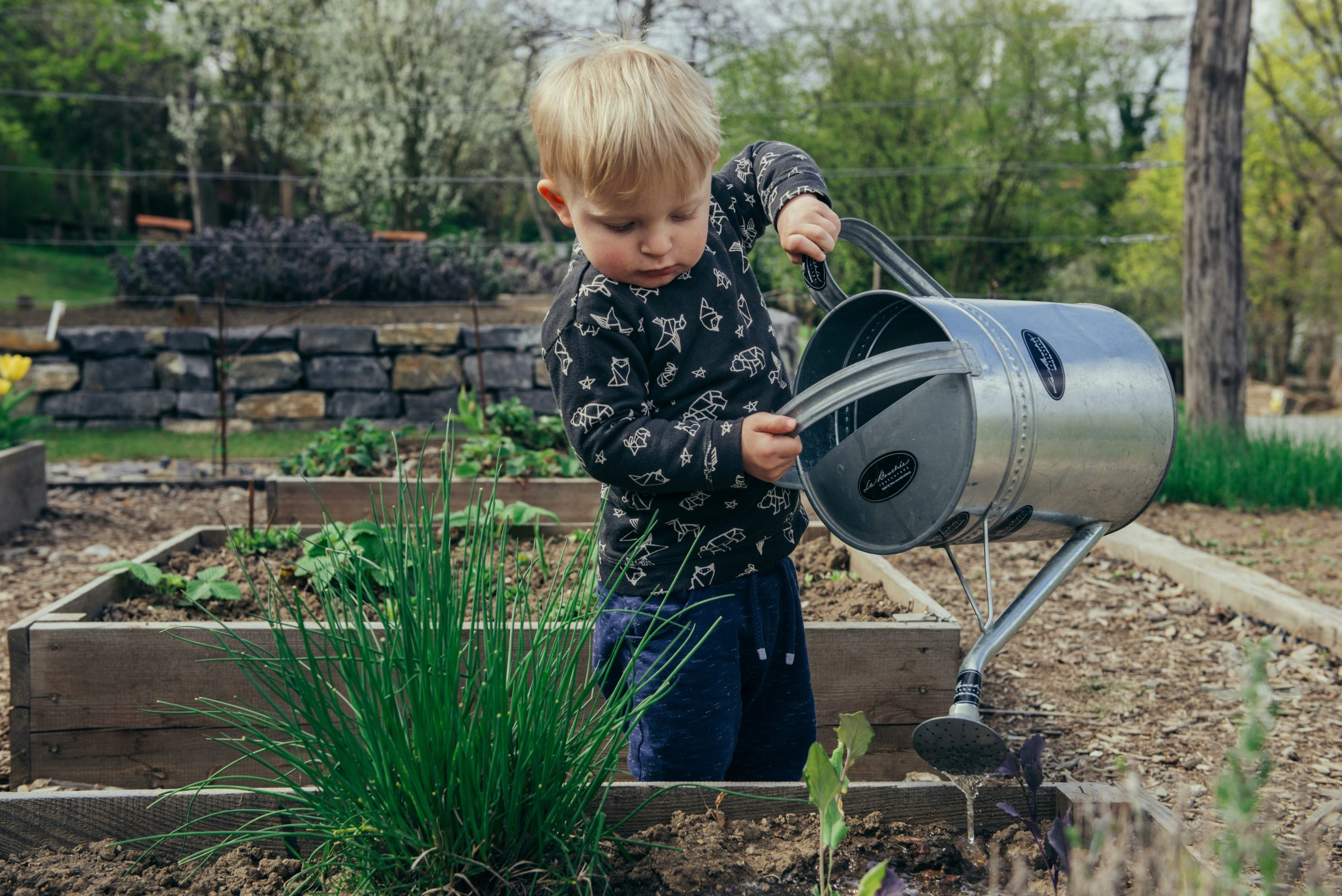
Spring is here and it is almost time to start planting in the garden! My toddler and I have gathered our seeds, made a list of the plants we need and dusted off our watering cans. Now, we are eagerly awaiting the day we can get our hands (and toes) in the dirt and plant our garden.
Some may ask: how can toddlers help in the garden?! Easy peasy! It’s a nature-made sensory bin! Our little investigators are gardeners through digging, watering, harvesting and exploring the wildlife that lives right in their backyard – or front yard too! And this spring our plan is to create a sensory garden that we can explore with our five senses: touch, smell, sound, taste and sight.
“A sensory garden appeals to the way kids like to learn, which is often through their hands, ears, and eyes. A dried seed pod can become a maraca; a lamb’s ear leaf is like their favorite stuffed animal; a juicy cherry tomato is a sweet treat.” (Abrams, 2022)
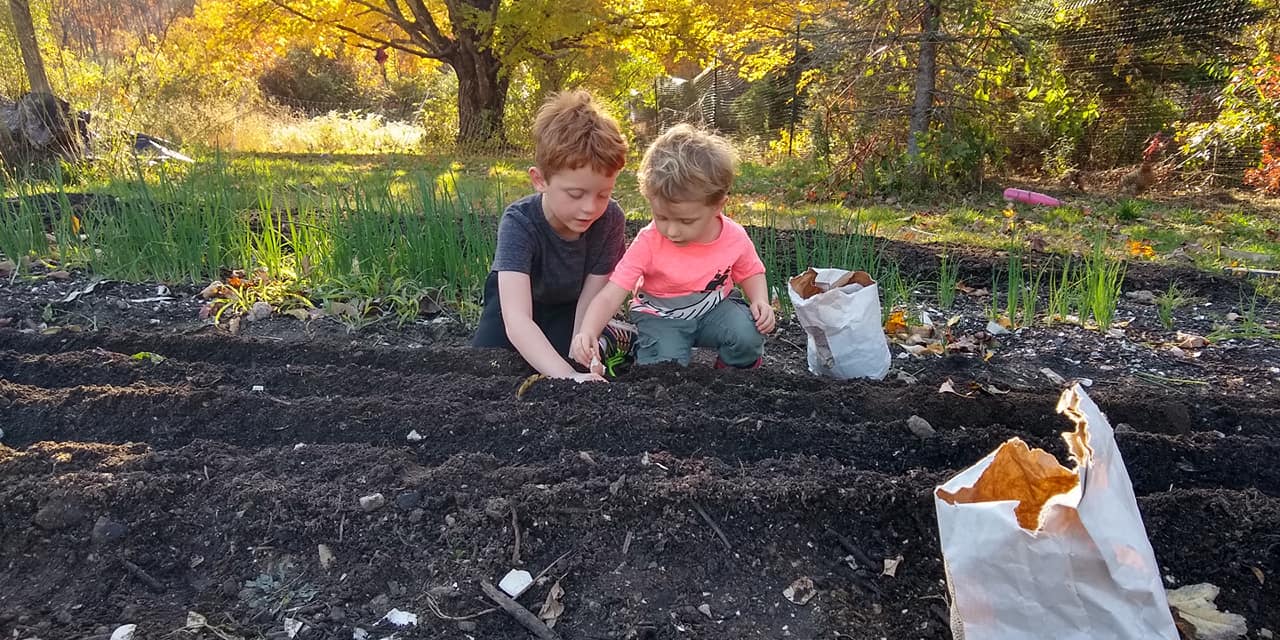
Please note all plants mentioned below are nontoxic and safe for little hands.
Touch
We are adding plants that invite us to explore different textures with our sense of touch. We will feel the fuzzy leaves on lamb’s ear and the feathery leaves of dill. Marigolds also have colorful and sturdy petals that can withhold little hands exploring them. If space allows, we will fill a corner of our garden bed with smooth rocks, soft pincushion moss, and succulent ground cover for a pop of color!
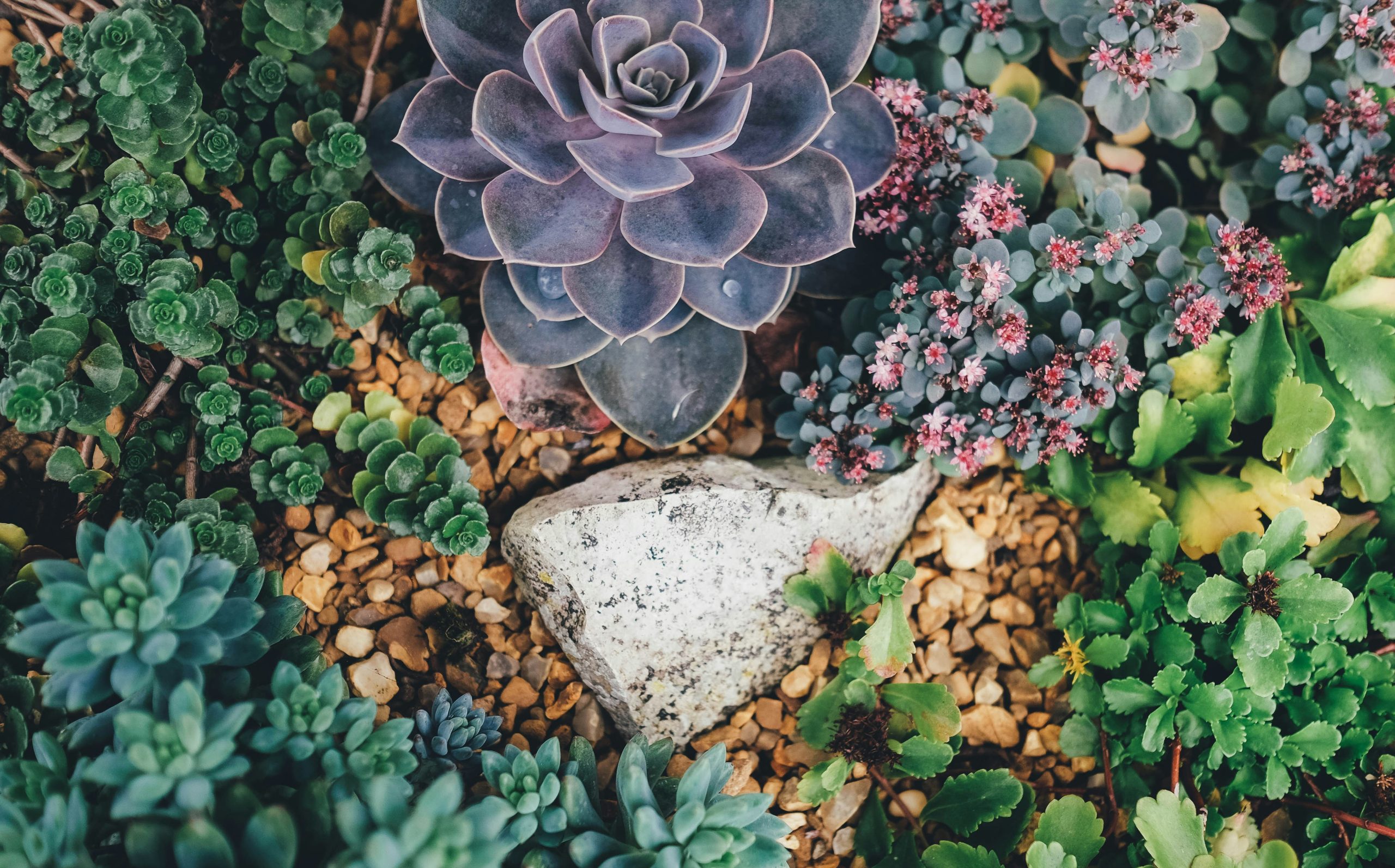
Smell
The garden beds will be filled with an assortment of herbs that we can smell all season long. Some of our favorite herbs are English lavender, chives and thyme. Another way to add sweet aromas to your garden is by planting flowering vines or cut flowers. A few easy to grow flowers are zinnias, sunflowers and marigolds. Just be careful not to plant flowers that may have thorns or spiky leaves!
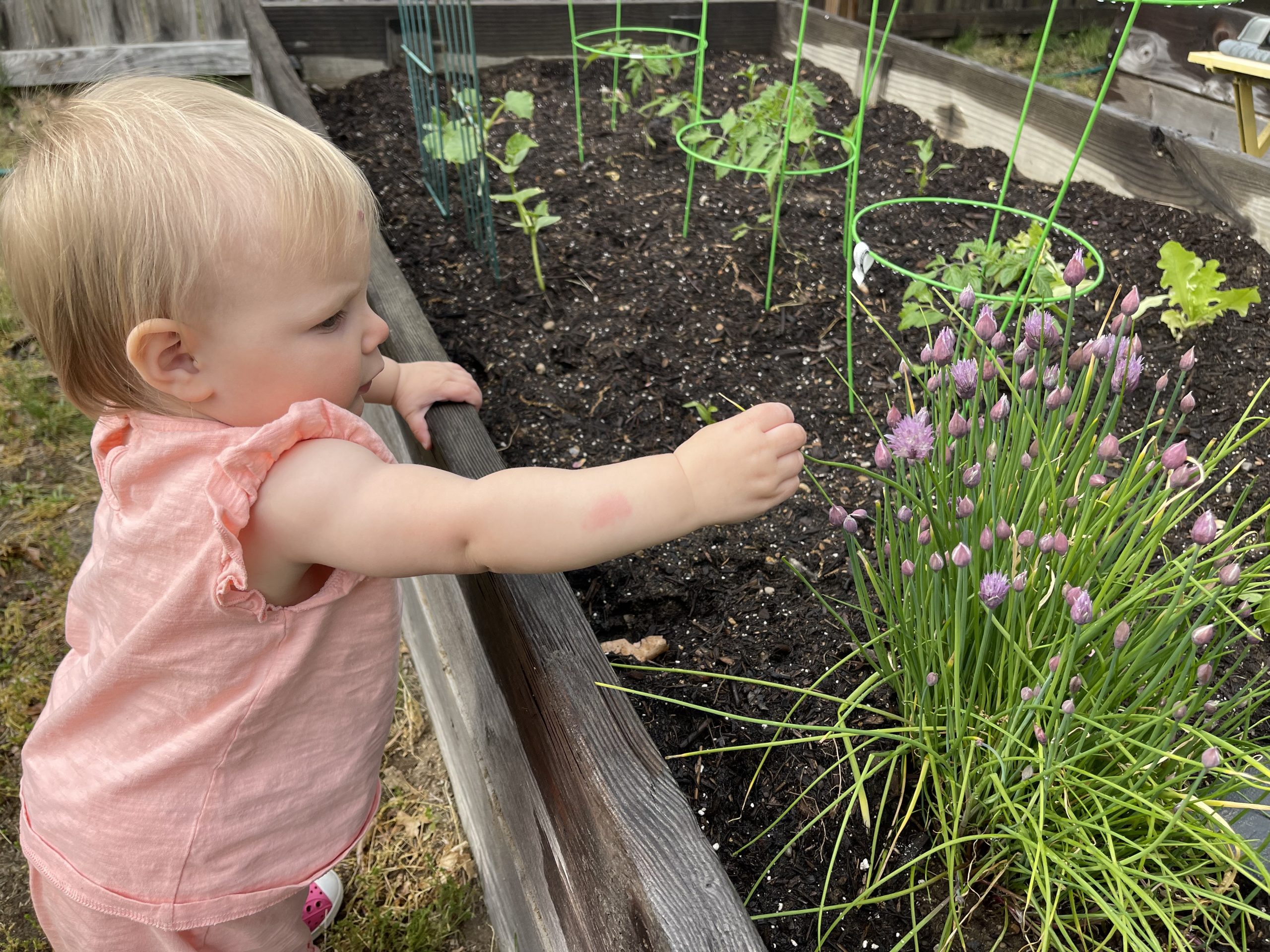
Sound
The sound of trickling water from a fountain or bird bath will be calming for all of your garden visitors. It might even encourage your local birds to visit for a dip in the bath on a warm summer day! Ornamental grass adds a unique sound to a sensory garden when the leaves touch in the wind. Another simple way to add an element of sound is by hanging a wind chime nearby. Invite your little one to create a wind chime using flower pots, string and beads or make a bee bath using ceramic pots and river rocks.
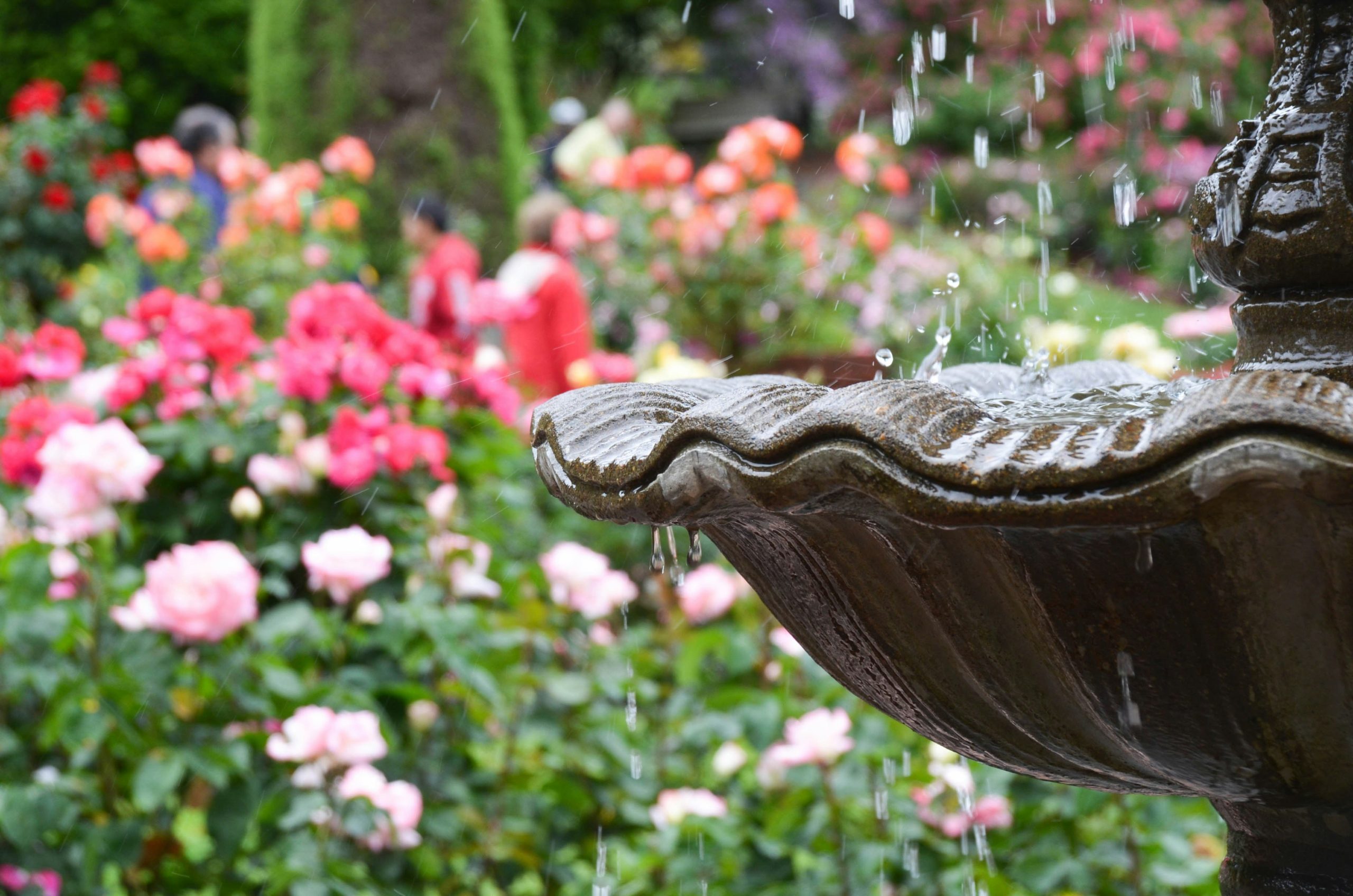
Taste
When you think of a garden, we often think of all the plants we can harvest and eat! There is an assortment of edible plants, herbs and fruits and vegetables that can be planted in your sensory garden. We will be adding our favorite herbs; basil, chives, parsley, mint and oregano. There are also edible flowers that will thrive in a garden like calendula, nasturtiums, and pansies. You can enjoy these flowers with your sense of taste and sight! Other fruits and vegetables that are perfect for little hands to harvest and enjoy are strawberries, cherry tomatoes and carrots. Encourage your toddler to gently pull on a leafy stem and watch an orange carrot pop out of the dirt!
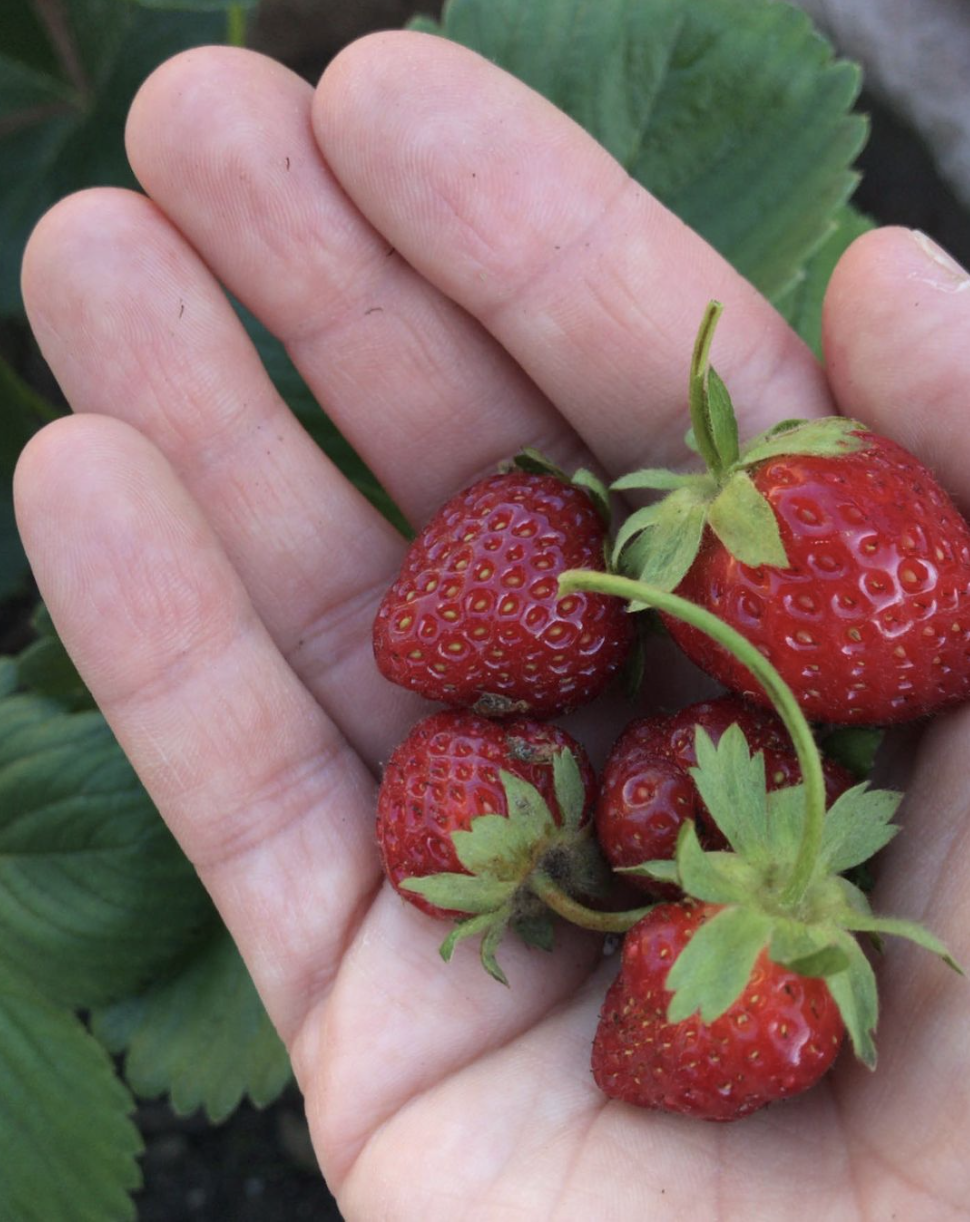
Sight
We love to sit back and look at our sensory garden as it grows from sprout to bloom. For this reason, we moved a wooden bench closer to our raised beds to admire our plants and the creatures that love to visit. We like to sit and watch the butterflies and bumblebees land on each sunflower, coneflower and milkweed. Our sensory garden reminds us to slow down and smell the flowers.
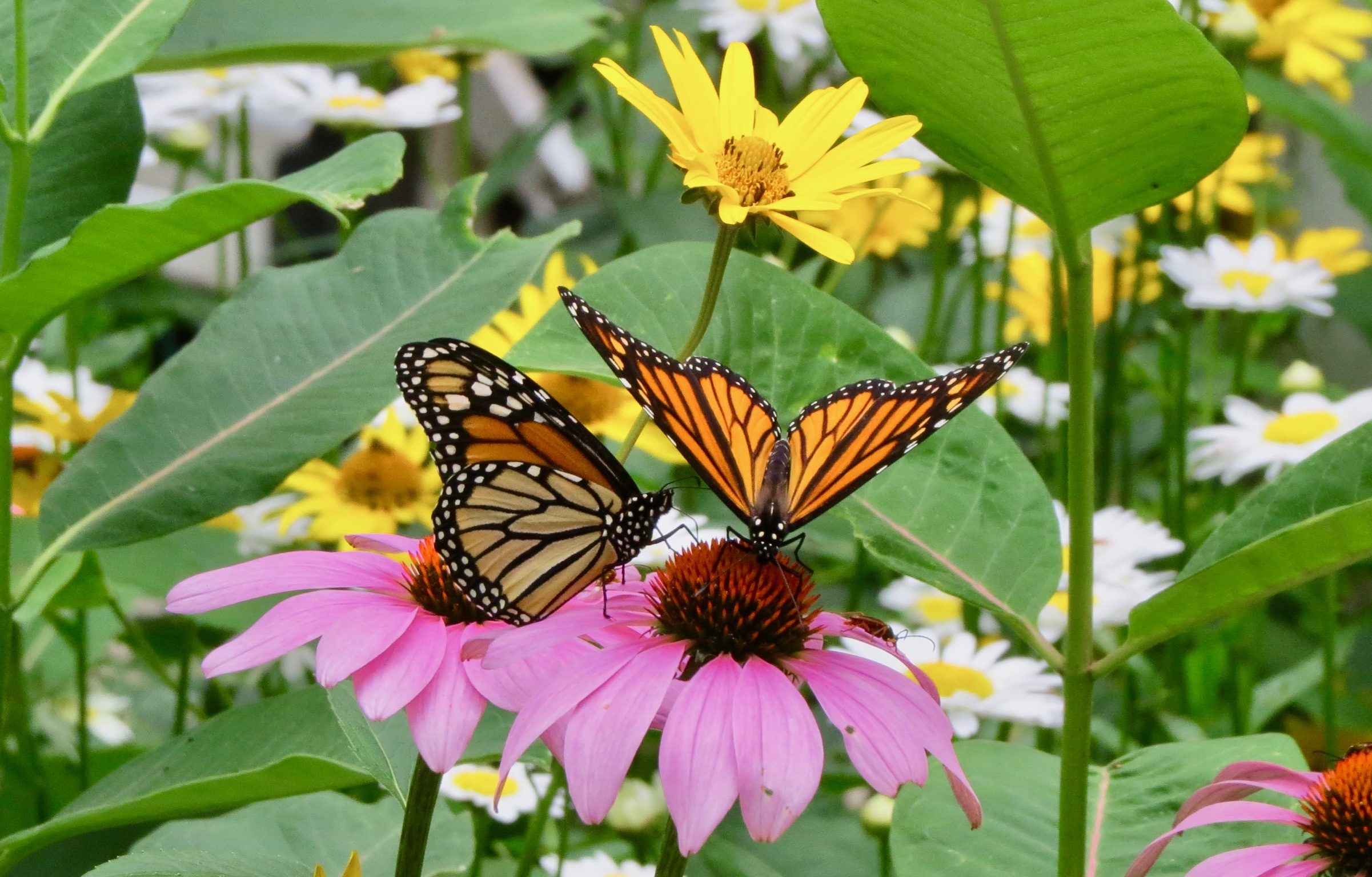
“A sensory garden for kids can inspire opportunities for education and play. The space can pique their curiosity, creativity, and even aid their cognitive development.” (Abrams, 2022)
We hope you will be inspired to grab your shovels and sun hats and plant a sensory garden along with us this spring! Are you looking for more springtime activities to do with the whole family? Check out these 10 Things To Do in RI This Spring!











